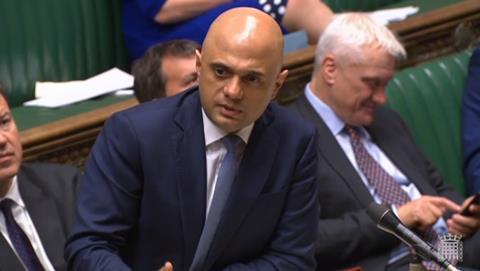Trade bodies call for policy to be scrapped just days after government climbdown
Contractors are calling on the government to scrap its new VAT regime – just five days after ministers bowed to industry pressure to hit the pause button, delaying the policy’s introduction by one year.
Last week’s climbdown came as main contractors were preparing to bail out suppliers ahead of the original start date, 1 October, because they were concerned the changes could force many smaller firms out of business.
Sarah McCann-Bartlett, director-general of the British Constructional Steelwork Association, is now lobbying for the policy to be abandoned. She said: “The policy in itself will still be damaging to subcontractors and government must use this period to review the decision altogether.

“If they don’t then subcontractors will still be facing massive blows to their cash flow and many may not recover from that.”
No fewer than 15 construction trade bodies had called on the chancellor, Sajid Javid, to postpone the start of the new VAT regime so firms had a fighting chance of preparing for the change.
Last Friday, the government agreed to the one-year delay – six months more than most were hoping for.
HMRC said: “To help these businesses and give them more time to prepare, the introduction of the reverse charge has been delayed for a period of 12 months until 1 October 2020. This will also avoid the changes coinciding with Brexit.”
Federation of Master Builders chief executive Brian Berry, who helped to spearhead industry lobbying against the October start date, welcomed the delay, saying the government had made a “sensible and pragmatic decision”.
He added: “To plough on with the October 2019 implementation could have been disastrous given that the changes were due to be made just before the UK is expected to leave the EU, quite possibly on ‘no-deal’ terms.”
So concerned were tier 1 contractors by the changes, they had begun looking at ways to help out firms set to be caught out by the new rules.
The changes would have meant subcontractors were set to take a 20% hit on their cash flow, since they would no longer be able to charge VAT for construction services.
The responsibility of paying VAT would have shifted to the main contractor, in an attempt by the government to crack down on fraud within the sector.
Ali Anderson, VAT partner at professional services firm EY large contractors, said a number had “started investigating how they might help their subcontractors with cash flow in a different way”.
He added: “Whether that’s paying them more quickly or quite what, I don’t think there’s a consistent view on that yet – but it’s in their interests that their subcontractors aren’t falling over because they are running out of cash.”
Louise Matchett, group tax manager at construction firm Graham Group, told Building: “We were discussing internally that for some people we might like to see can we pay them a bit earlier to try and soften the blow.”
And a spokesperson for Wates said: “If suppliers have particular issues we will deal with these on a case-by-case basis.”
About 150,000 businesses would be affected by the changes, the government has admitted.


























No comments yet